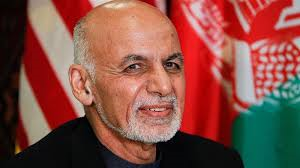Ghani and his main rival, Abdullah Abdullah, both held swearing-in ceremonies Monday after weeks of mediation efforts between the two men failed. Afghanistan’s election commission named Ghani the winner of the September presidential contest, with just enough of the vote to avoid a second round, but Abdullah declared the results fraudulent and claimed victory.
The spectacle of dueling inaugurations held just yards apart at separate compounds reflects worsening divisions among Afghanistan’s political elite as the country prepares to enter talks with the Taliban.
Mediation efforts were held late into the night Sunday and continued until just moments before the ceremonies. U.S. special envoy Zalmay Khalilzad, who brokered the U.S.-Taliban peace deal, shuttled between the two camps in an attempt to find a compromise.
Secretary of State Mike Pompeo said in a statement Monday that the United States opposes “any action to establish a parallel government, and any use of force to resolve political differences.”
The deal also called for intra-Afghan talks to begin Tuesday. It is unclear whether that benchmark will be met: U.S. and Afghan officials had indicated that the meeting would be held in Oslo, but a Norwegian government spokesperson said Monday that no meeting there had been scheduled.
The U.S.-Taliban deal called for the Afghan government to release thousands of Taliban prisoners ahead of the talks, a condition that Ghani objected to after the deal was signed. Taliban spokesman Suhail Shaheen told The Washington Post the prisoners must be released by Tuesday.
Ghani’s office said he will issue a decree on “the Taliban prisoners issue” Tuesday but declined to release further details.
Ghani was promising to rid the system of “the evil of corruption and bureaucracy” Monday as the first blast shook the presidential palace. He continued speaking through the gunfire and blasts that followed, pledging to increase revenue in the private sector and calling on the crowd to remain calm.
“We have seen major attacks. Don’t be afraid by two small blasts,” he said before being escorted from the scene by his security detail.
The attack on Ghani’s swearing-in ceremony occurred despite security forces taking measures to protect the ceremony. Monday was declared a national holiday in Kabul, miles of roads were closed to civilian traffic around the inauguration site, and residents were encouraged to stay indoors.
Violence spiked in Afghanistan after the peace deal signing. The Islamic State carried out an attack Friday on a gathering of the ethnic Hazara and Shiite minority where Abdullah was present that killed 32 and wounded more than 80.
In the days leading up to the inaugurations, Abdullah was offered ministerial-level positions in Ghani’s government but demanded the creation of the role of prime minister, said Omid Maisam, his spokesman. The move would have effectively created a second power-sharing government.
Ghani repeatedly pledged during the 2019 presidential campaign that he would not accept another power-sharing government. And Abdullah warned that he would not accept another election with results marred by fraud.
The United States and other key Afghan allies have urged the country’s leaders to prioritize peace efforts.
“It is time to focus not on electoral politics, but on taking steps toward a lasting peace [and] ending the war with the Taliban,” Morgan Ortagus, a State Department spokeswoman, said in a statement last month.
 Lebanese Ministry of Information
Lebanese Ministry of Information



